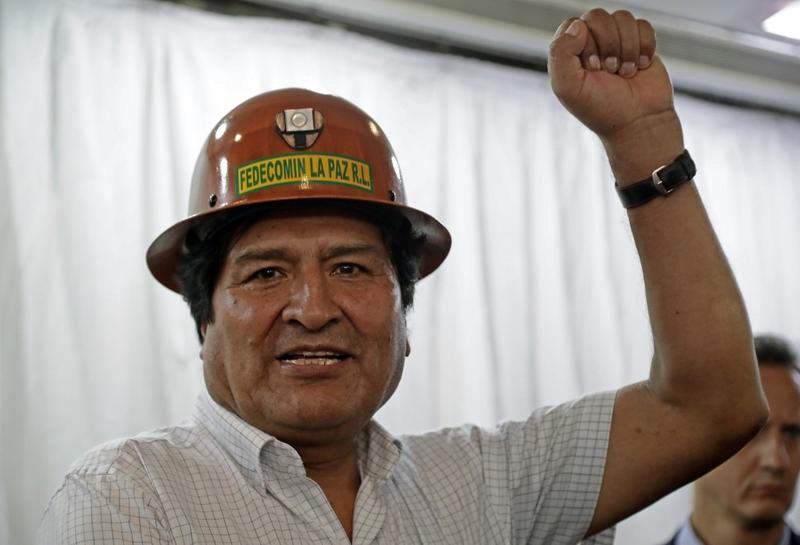 Bolivian ex-president Evo Morales, exiled in Argentina, gestures before offering a press conference after holding a meeting with members of his Movement for Socialism party to fix date and place to chose their presidential candidate for the Bolivian general election, in Buenos Aires, on Dec 29, 2019. (ALEJANDRO PAGNI / AFP)
Bolivian ex-president Evo Morales, exiled in Argentina, gestures before offering a press conference after holding a meeting with members of his Movement for Socialism party to fix date and place to chose their presidential candidate for the Bolivian general election, in Buenos Aires, on Dec 29, 2019. (ALEJANDRO PAGNI / AFP)
LA PAZ / BUENOS AIRES — Bolivia's Foreign Ministry has asked Argentina's government to disavow comments by Bolivian former President Evo Morales, currently living in exile in Buenos Aires, that called for the organization of armed militias in his home country.
Morales told Reuters on Sunday that Bolivians had the right to organize and defend themselves, without firearms, from what he said were attacks by Bolivia's interim government, which he claims took power in a coup late last year.
A spokesman for Argentina's Foreign Ministry said the country did not recognize Bolivia's interim government and was waiting for "transparent elections to recognize the next government of Bolivia."
"We ask the Argentine government to repudiate the practices of Evo Morales, at odds with the law and international public order," Bolivia's government said, adding it had sent a diplomatic letter to Argentine Foreign Minister Felipe Solá.
Bolivia's interim government has done little to hide its anger that Morales has continued to play a key and vocal political role with his Movement for Socialism party ahead of new elections called for May 3.
A spokesman for Argentina's Foreign Ministry said the country did not recognize Bolivia's interim government and was waiting for "transparent elections to recognize the next government of Bolivia."
Argentina's center-left Peronist President Alberto Fernandez has previously supported Morales' rights to speak freely.
READ MORE: Bolivian President Morales has emergency surgery for tumor
Granting him asylum has, however, created tensions between his new administration and the United States.
Bolivia's interim President Jeanine Anez is rallying opposition to Morales ahead of the May election.
Morales is not running but is orchestrating his party's campaign. Anez has also rekindled Bolivia's relationship with the United States.
Mauricio Claver-Carone, a senior adviser to US President Donald Trump, is visiting Bolivia, a sign of warming relations between the two countries.
After meeting with Anez on Wednesday, Claver-Carone said the United States wanted to cooperate with Bolivia on trade, investment, support for the electoral process and the fight against corruption and drug trafficking.
ALSO READ: Bolivian President Morales has emergency surgery for tumor
"The United States and Bolivia are naturally allied countries. Unfortunately, we have been separated for many years for no good reason and in an unnatural way, because we have the same interests, we have the same democratic values and that is what we seek to deepen," Claver-Carone said, in an apparent reference to strained relations under the almost 14-year administration of Morales.
Bolivia's top court also agreed to extend the term limit on Anez's caretaker government which had been due to expire later this month, defusing some tensions after Morales had urged her to step down.
United Nations envoy Jean Arnault applauded the court's decision in a statement and said it was "essential" to give up violence or threats of violence to ensure transparent elections.
"The Personal Envoy joins the rejection expressed by many national actors of the recent statements by Mr. Evo Morales," Arnault said in a statement.


